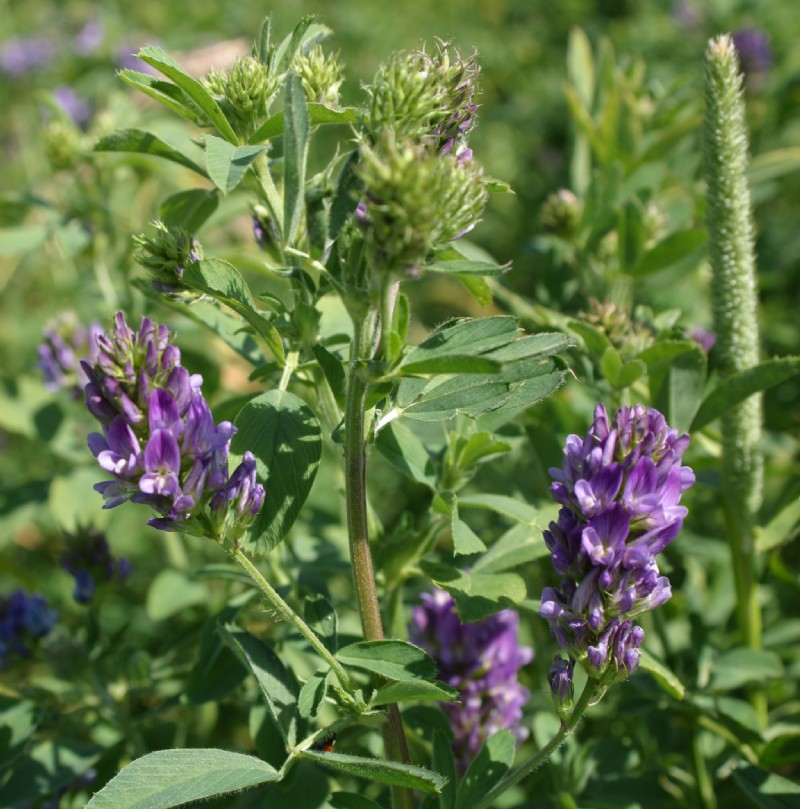

Lucerne varietal choice can be confusing. This is mainly because Lucerne is not native to UK soil, and therefore picking the right cultivar is important to ensure it can survive and thrive in our climate.
When deciding on a Lucerne variety we usually refer to dormancy as a good judge of its suitability to a given climate. Dormancy can be categorised as follows:
|
Dormancy Rating |
Name |
Detail |
|
1-3 |
Winter Dormant |
No winter growth - very short growing season |
|
4-5 |
Semi-Winter Dormant |
Very little winter growth, excellent persistence and summer quality for hay or grazing. |
|
6-7 |
Winter-Active |
Dense and quite persistent, dual purpose types |
|
8-9 |
Highly Winter-Active |
Up to 3T/DM in winter, good for short term stands, good seed vigour and good recovery after cutting. |
|
10-11 |
Very Highly Winter-Active |
Highest vigour but quality will decrease significantly as the plants become more mature |
In parts of the USA, where Lucerne is grown extensively, there is a much longer growing season due to the warmer climate. Varieties with low dormancy are preferred in these circumstances as they produce more growth during the winter months.
In the UK however, due to the colder temperatures during the winter, a higher dormancy of around 4-5 is better suited. The advantage of these varieties is that they tend to be more persistent and very good quality for hay making and grazing.
Varieties commonly grown in Europe can also be categorised as described below by AHDB from their ‘Growing and Feeding Lucerne guide’:
“There are two dominant types of lucerne grown in Europe: Provence and Flemish. ‘Provence’ or Southern types of lucerne have a long growing season, are able to withstand frequent cutting regimes and are very drought tolerant. However they lack winter hardiness and are on the whole less suited to UK conditions.
In contrast ‘Flemish’ or Northern varieties are less drought hardy, with poor adaptation to frequent cutting. However they are more cold-tolerant due to their dormancy rating and are therefore better suited to UK conditions.”
Date Posted: 2nd July 2018




